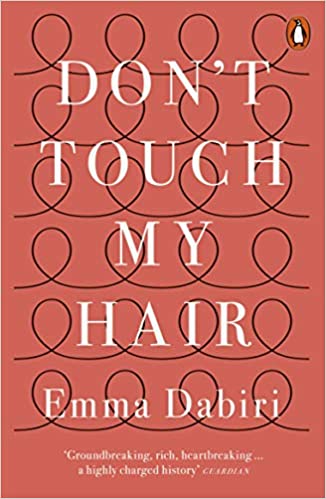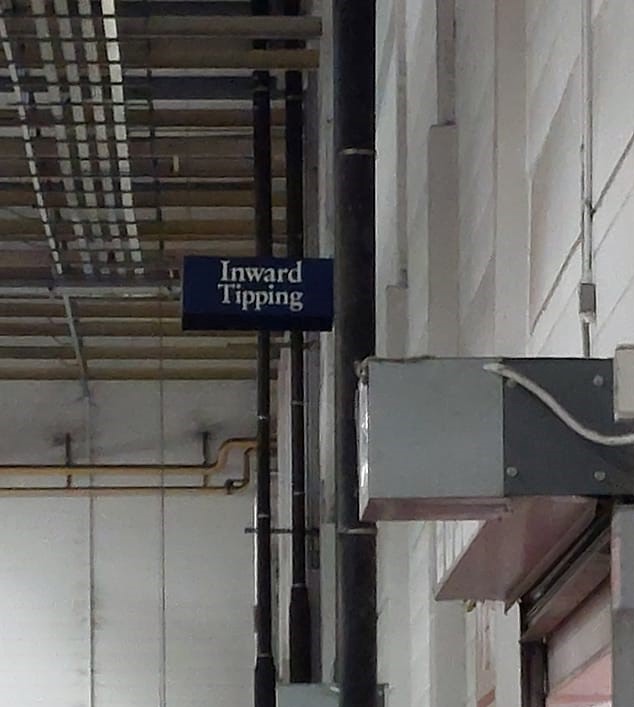
Don’t Touch My Hair by Emma Dabiri is a powerful combination of memoir, history and political polemic.
Woven into the braids of African hair is the story of pre-colonial Africa and through Emma’s personal experience and research in this book, we get to read the narratives of black people from that time to this. It is also a cry from the heart for a world which honours humanity, in all its colours and textures.
“As a practice, hairstyling has much to offer and opens up excitingly decolonized possibilities for better understanding the African past in order to shape a better collective future.”
Significance of metaphor
Three themes stand out for me. First is the importance of recognising the significance of metaphor. The first chapter, entitled ‘It’s only hair’, makes it clear that there is no ‘only’ about it.
“From my earliest memories, my hair was presented as a problem that needed to be managed. The deeply entrenched idea of ‘managing’ black women’s hair operates as a powerful metaphor for societal control over our bodies at both micro and macro levels.”
Within attitudes to black people’s natural hair, both from white and black people, is the history of colonialism with all the assumptions of black inferiority. African hair, just as the Africans themselves, is seen as unruly and wild, in need of taming to make it more palatable to the white man. And I do mean man as there is something deeply patriarchal in this notion of applying the civilising hand of reason and order to the wild nature of both blackness and woman.
For Dabiri, hair is a living language. “Our unique hair texture allows us to be the living embodiments of a complex visual language, the scope of its concerns social, technological, philosophical and spiritual – a visual language that was designed to be transmitted by our features.” By dismissing the metaphor, by saying ‘it’s only hair’, then once again we silence that language.
Believing people on their terms
The second theme is the importance of believing people’s stories on their own terms, whatever the story. I started to get interested in race and challenging my own white privilege, after I was called out by a friend of mine. She is Jamaican and tried to tell me about an experience which she experienced as racism. I dismissed her reading of the situation saying it was just personal and had nothing to do with race. She called me out on that, and eventually I listened and started to educate myself. When I read Reni Eddo-Lodge’s Why I am no longer talking to white people about race, I realised I had done precisely the thing that had stopped Eddo-Lodge from talking to white people about race, the penny finally dropped and my journey with challenging whiteness began.
It is not up to us to determine where significance lies for somebody else. During the recent row in cricket about the allegations of racism made by Azeem Rafiq, current and former England Captains, Joe Root and Michael Vaughan, came out to say that they are not racist and that they have never seen any racism*, whereas a chorus of Asian players said something else. Maybe, just maybe, white people don’t see racism in the same way that people of colour do. It is not up to white people to determine what is and isn’t racism. It is never up to someone else to decide how you see something.
At the same time as reading this book I was reading Natasha Lunn’s Conversations on Love. In her conversation with writer Roxane Gay she learns that vital to maintaining a love relationship is “accepting and believing your partner’s feelings when they are different from your own, rather than trying to talk them out of them.” Listening to what someone is saying from their point of view, listening with empathy, is an act of love. It is not just important for me as a white person to listen to the stories of black people because they are black and if I am to be a good anti-racist then that is what I am supposed to do. I am listening because that is what love requires of me.
We all bring our personal stories, histories, some personal, some systemic, to any situation. To truly hear, to truly see the other, we have to listen to their story on their terms and listen for the significance that any situation has for them.
Reclaiming your time as a radical act
The third element is about reclaiming your natural hair as a radical act of reclaiming your connection with your wild nature and with the earth.
“But the terms ‘neat’ and ‘professional’ are both highly constructed, and to deem black people’s hair as it grows naturally from our heads neither neat not professional is incredibly revealing.”
Patriarchal capitalism requires that we are divorced from the earth and from our own wild animal natures. To reconnect with the natural world and our own place in it, allows us to be in the flow of life. The disconnection wrought by industrial capitalism has allowed the desecration of the earth. To reclaim our connection with our own wild natures is to move towards a world where we can heal the earth or at least stop destroying it.
I feel the same way about reclaiming our menstrual cycles. I know so many women whose cycles have been closed down by hormonal contraception and replacement therapies and I wonder what we lose by doing that, being able to act like quasi men. We lose the ability to listen to our bodies’ own rhythms and language. We lose connection with the cyclical nature of energy generally, corresponding to the cyclical nature of the moon and the tide and the seasons and of time.
“On a practical and basic level, reclaiming my time is rejecting a lifestyle that prevents us from doing our damn hair. Reclaiming my time is taking the time to practise self-care, time too often denied in a brutal world designed to grind us down.”
Reclaiming the time to have your hair done is about reclaiming that depth of connection with another human, with the group, with your sisters, and with your own bodies. Animals groom each other all the time, it is part of interdependence, of bonding, belonging, community. Red tents were about hanging out with your sisters, reclaiming sorority, honouring and celebrating where you are in your cycle, not closing it off even to yourself, so that you can be a good functioning capitalist worker, forever available. Reclaiming that time is a radical act.
“Many women insist that their decision to go natural is not explicitly political. The fact that they even have to state this, however, shows how far from the norm black hair is still considered to be.”
There is tremendous richness in this book. I look forward to reading her next one What White People Can Do Next.
*they have since backtracked and are cooperating with the investigation into the allegations. I am hoping it will be a good opportunity for soul-searching, not just in Yorkshire cricket but in society generally. As a sport which spread round the world at the time of empire, and is still primarily played by former British colonies, cricket can be seen as a microcosm of colonialism generally.



